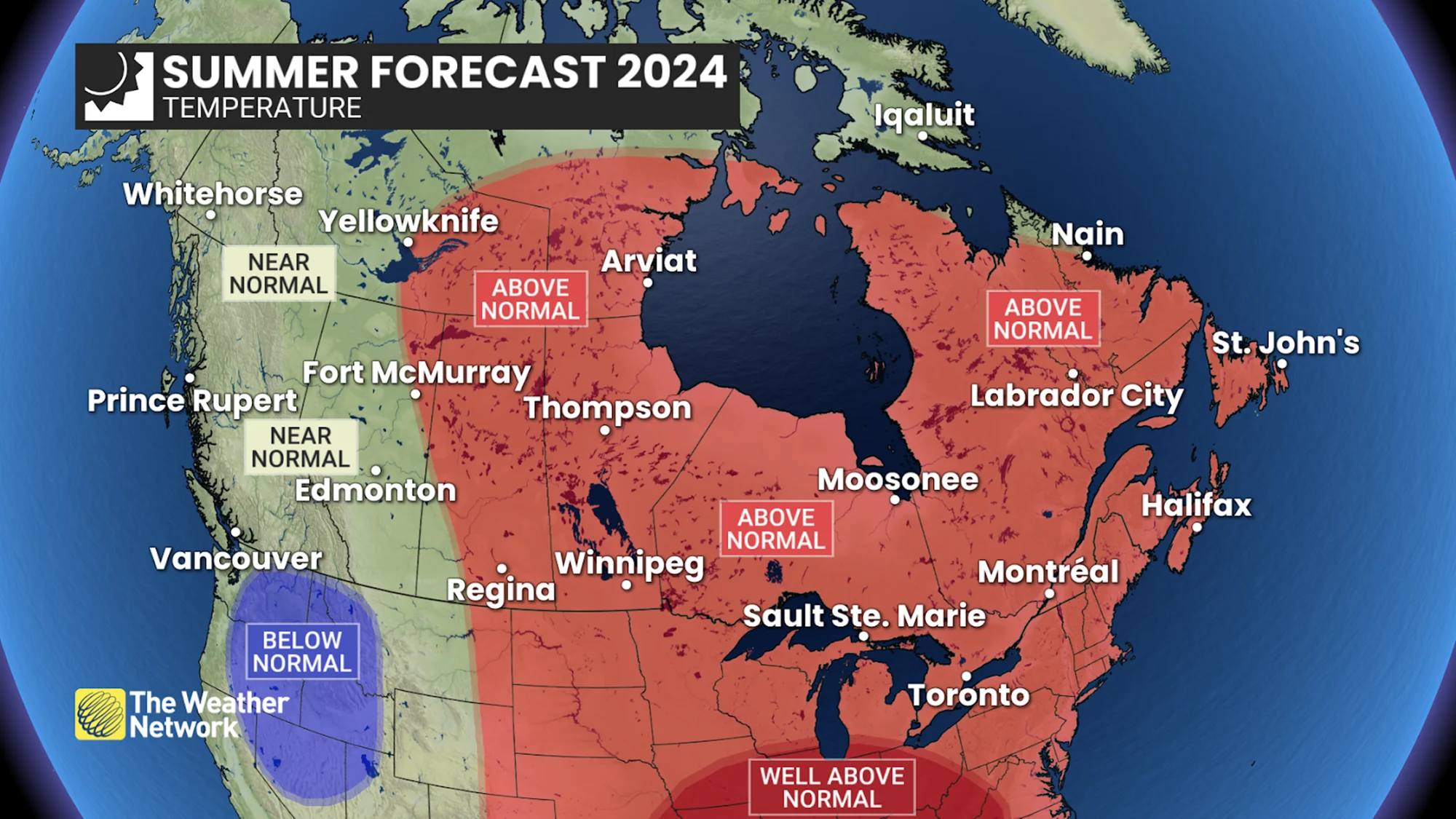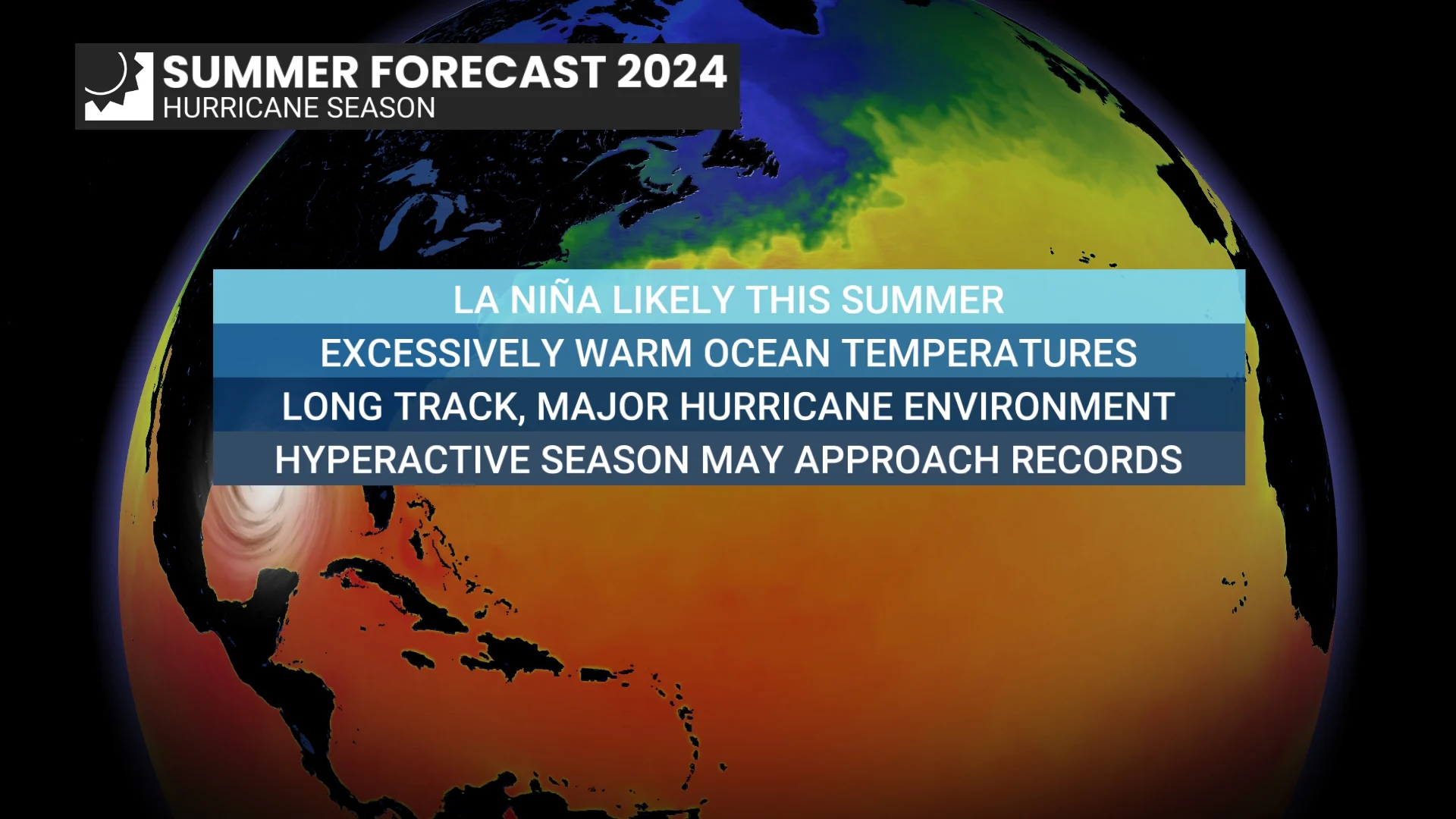As we head into the official start of summer, The Weather Network, Canada's trusted source for weather information, has unveiled its highly anticipated 2024 weather forecast for June, July, and August.
This year, a season of warmer-than-normal temperatures, fewer rainy days, and abundant sunshine for most of Canada is expected. While this might sound perfect for lakeside lounging, the forecast comes with some caveats.
National Overview
Canada can expect a warmer summer overall, with temperatures soaring particularly in July and August. Rainfall will be near or below normal, leading to potential droughts, heightened wildfire risks, and poor air quality.
Western Canada will experience a typical summer with hot periods, but the heat won't be as intense as in recent years. More scattered showers and thunderstorms are expected, which could help mitigate wildfire risks somewhat.
Central Prairies to Atlantic Canada will see warmer-than-normal temperatures, especially in July and August. June will offer some cooler reprieves, but extended heat waves are a significant risk.

Regional Breakdown
British Columbia:
- Expect typical summer weather with hot spells, particularly in the interior regions like Kelowna and Kamloops.
- More showers and thunderstorms than in recent years, but wildfires remain a major concern.
Alberta:
- Warm but less extreme than past summers.
- Northern areas like Fort McMurray face drought risks despite May's rainfall relief.
- Expect near-normal rain totals due to storms from the south.
Saskatchewan and Manitoba:
- Very warm with potential heat waves, especially in southern Manitoba.
- Powerful storms may break dry periods, keeping rain totals near normal.
Ontario:
- Hot and humid, particularly in southwestern regions like Windsor and London.
- Post-wet spring, expect extended dry spells, high fire danger, and potential for severe storms.
Quebec:
- Hot and humid with risks of extended heat waves, especially in southern and western parts.
- Lower fire danger initially, but expect dry spells and poor air quality later.
Atlantic Provinces (Nova Scotia, New Brunswick, and P.E.I.):
- Very warm and humid with some cooler periods in June and early July.
- Dry spells likely, but active hurricane season may bring heavy rains.
Newfoundland and Labrador:
- Warm and humid with cooler spells in June and early July.
- Watch for dry conditions and potential heavy rains from hurricanes.
Northern Canada:
- Warm summer expected in western Nunavut and eastern NWT.
- Dry conditions and wildfire risks remain high, with smoke and poor air quality as major concerns.

The La Niña Twist
After a winter dominated by El Niño, we're transitioning back to La Niña, characterized by cooler Pacific Ocean temperatures. Historically, such transitions have brought cooler, wetter summers to western Canada. However, this La Niña event is developing uniquely, so past patterns may not fully predict this summer's weather.
Final Thoughts
While many Canadians may look forward to a sunnier, warmer summer, it's essential to stay vigilant about the associated risks like droughts, wildfires, and severe storms. Keep an eye on weather updates and stay prepared for the changing conditions this season.




